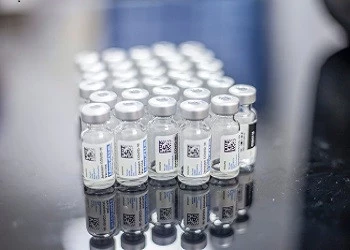The Nurse’s Responsibility in the Field of Clinical Pharmacology
When drugs are used in a clinical setting, they have the potential to provide therapeutic benefits to patients with any number of disease or illness. However, considerable challenges are currently hindering new drug development.
Add bookmarkWhen drugs are used in a clinical setting, they have the potential to provide therapeutic benefits to patients who are afflicted with any number of illnesses and diseases. Scientific advancements in the field of clinical pharmacology are improving the ways in which drugs interact with humans. However, considerable challenges are currently hindering new drug development. Doctors of Nursing Practice (DNPs) have a responsibility to give their patients effective care and advice, while also keeping up with the newest developments within the field of clinical pharmacology.
Challenges Facing the Industry
According to the American Society for Clinical Pharmacology and Therapeutics (ASCPT), “clinical pharmacology is the study of drugs in humans.” While drugs could potentially save lives and provide relief to patients who are suffering, efforts must first be made to address challenges delaying the arrival of new drugs on the market.
Major Challenges in Clinical Pharmacology
Challenges related to trial enrichment, attrition, dose optimization, target validation and high failure rates of investigational compounds can all have a significant impact on drug development.
Trial enrichment becomes a challenge when programs fail to capitalize on patient diversity for greater insight on drug response and effectiveness, while attrition becomes an issue when participants drop out of drug trials or studies. Dose optimization is affected when improper drug doses are selected for patients, as this can cause delays and failures in the regulatory review process. Target validation requires verification that the selected target can potentially provide therapeutic benefits. And high failure rates of investigational compounds during drug development can cause time and resources to be wasted when introducing new drugs to the market.
Areas of Improvement in the Field
Despite challenges affecting the field of pharmacology, various improvements are helping to expedite drug development. Biomarker-enabled enrichment approaches allow growth in research and development by finding targeted treatments and eliminating outdated approaches. Biomarkers can also be used to screen for patients who have the highest likelihood of responding to treatment.
Dose finding and dose-response characterization uses adaptive dose-ranging designs to optimize dose selection and increase the probability of success during drug development.
Quantitative systems pharmacology (QSP) allows for greater insight into the ways drugs interact with the body and determines the viability of early-stage drug candidates through the use of computational models. These models can also be used to simulate and predict clinical trial outcomes and reduce rates of attrition by accounting for intrinsic and extrinsic patient factors.
The Nurse’s Role and Responsibility
By understanding the drug development process and staying informed on clinical trials, DNPs can serve their patients effectively. Doctors of Nursing Practice should be able to administer medication, interpret writing on prescriptions and inform patients on the correct methods for self-administering specific medications. DNPs should also understand the mechanism and action of a drug, while also monitoring how the drug affects the body and avoiding harmful drug interactions. In addition, they should make efforts to educate health care professionals on the newest developments in the field of clinical pharmacology.
Statistics and Possible Reasons for Noncompliance
It has been estimated that 50 percent of medications prescribed each year are either taken incorrectly or not at all. Approximately 75 percent of patients have admitted to not always taking their medications as directed, and 33 to 69 percent of drug-related adverse events resulting in hospital admissions are connected to noncompliance. A patient may neglect to take medication as prescribed for a multitude of reasons. The patient may not like or trust their doctor, lack knowledge about a medication’s intended effects and usage, or be in denial about the state of their health. Forgetfulness, financial challenges or a lack of social support are other reasons why patients may not take their medication. Cultural or religious beliefs may also be a cause for noncompliance.
How DNPs Can Help Improve Compliance With Drug Therapy
Doctors of Nursing Practice can bridge gaps in communication with patients by answering questions, offering behavioural support and scheduling follow-ups to check on medication adherence. DNPs can also identify issues with compliance and encourage the patient’s involvement when solving problems. They may even provide drug cards, schedules and charts to simplify the process of taking medication.
DNPs can also keep up with new developments by accessing pharmacology and drug resources from CenterWatch Clinical Trial Resources, John Hopkins ABX Guide, the National Center for Complementary and Integrative Health, RxList, RxMed, safe medications and the U.S. Food & Drug Administration. Staying up-to-date on the latest advancements in the field of pharmacology is an essential aspect of the DNP’s role. DNPs must understand how new drugs interact with patients for the purpose of administering treatment that is simultaneously safe and effective.
This article originally appeared on Regis Online















